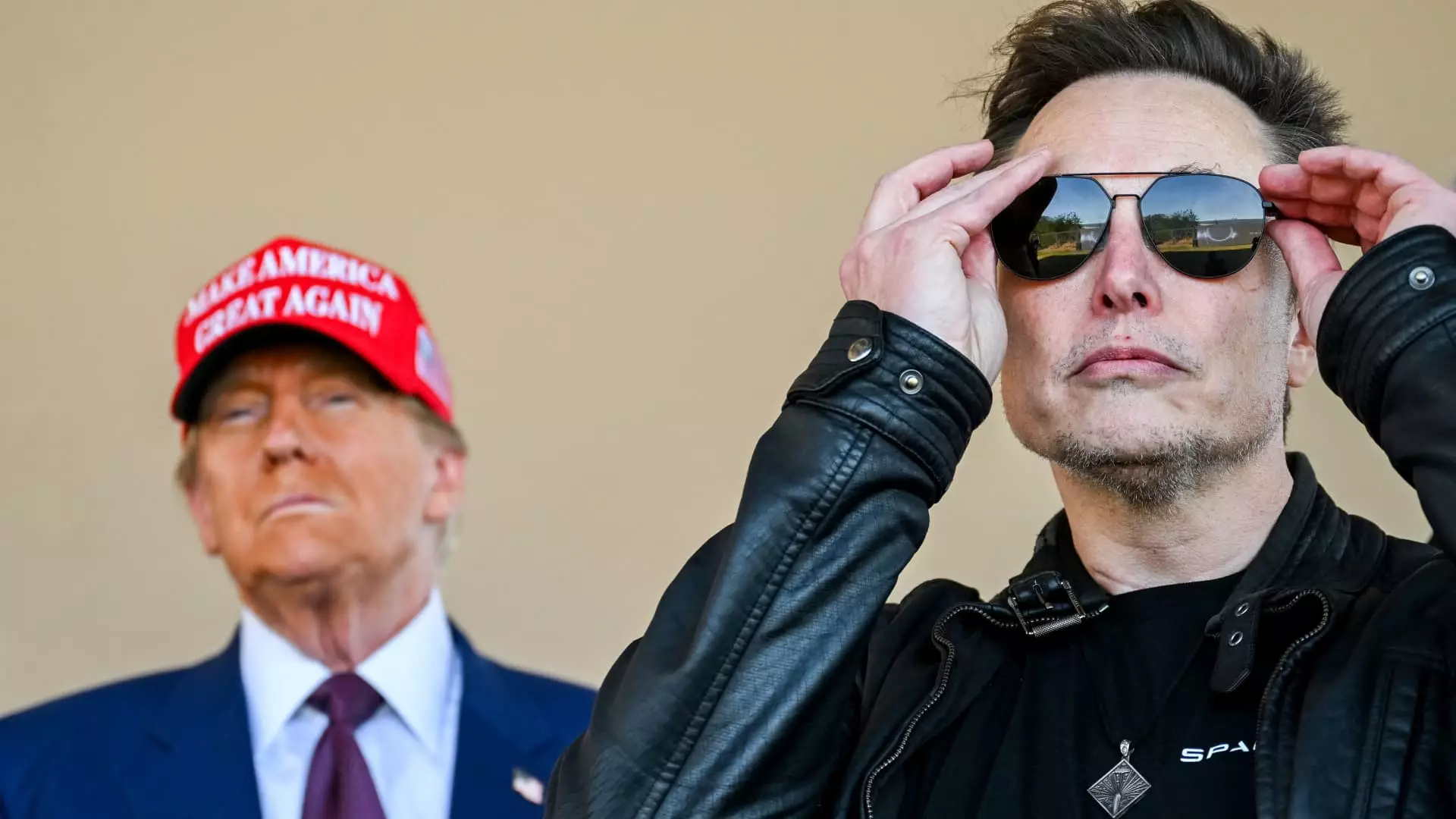In recent weeks, the political landscape in the United States has been rocked by questions surrounding the influence of billionaires on governmental processes. Particularly illuminating is the dynamic interplay between President-elect Donald Trump and tech mogul Elon Musk, whose considerable clout seems to extend far beyond his corporate empire. As Congress attempts to finalize its budget and avert crises, the observation that Musk’s social media activity could sway legislative action has ignited a firestorm of debate.
A recent bipartisan funding bill, meant to extend government financing, faced an unexpected threat allegedly due to Musk’s public dissent. His vocal opposition via posts on X, previously known as Twitter, raises alarms about the role social media personalities now play in shaping political narratives and decisions. Musk, who commands more than 208 million followers, issued statements encouraging lawmakers to reject the funding legislation, claiming that it was excessive and irresponsible. The sheer volume of his tweets prompted Democrats to accuse him of having undue influence over Republican lawmakers, leading to ridicule that dubbed him “President Musk.”
This phenomenon is indicative of a larger trend where social media platforms serve as conduits for powerful individuals to sway public opinion and potentially manipulate legislative processes. Such developments present pressing questions about the integrity of democratic institutions in light of unchecked power wielded by a few wealthy individuals.
Crossfire Among Lawmakers: Divisive Perceptions
The backlash against Musk is not isolated to mere critiques from Democrats; key Republican figures have also weighed in, asserting the necessity for party unity as Trump nears his ascension to the presidency. While some Republican lawmakers, like Sen. Bill Hagerty from Tennessee, commend Musk for enhancing transparency about governmental actions—claiming that his input helps constituents understand legislative issues—others, including Democratic Senator Elizabeth Warren, maintain that no billionaires should dictate the terms of governance. This polarized rhetoric emphasizes how Musk’s involvement transcends typical partisan squabbles, embodying a more profound concern regarding who really holds power in Washington.
It’s clear from these reactions that the nature of political discourse is evolving. Lawmakers acknowledge Musk as a figure that captures public sentiment, potentially symbolizing a changing hierarchy where traditional politics is overshadowed by the spectacle of celebrity influence. In this view, the balance of power appears drastically shifted, with digital platforms enabling billionaires like Musk to effectively engage with and mobilize the masses.
Political analysts warn that the increasing reliance on platforms like X for information may create a dangerous precedent. The perceived ability of a single individual to alter the course of congressional action based on social media commentary could lead to a chaotic and unpredictable legislative environment. Legislators are tasked with navigating not just the complicated mechanics of policy-making but also the whims of a digital populace spurred into action by the discourse initiated by affluent technocrats.
Additionally, experts express concern that this environment encourages a kind of populism that is not rooted in well-informed citizenry, but rather in the sensationalism and viral nature of social media communication. The risk is that significant legislative measures may become subject to the fluctuations of public opinion rather than to thoughtful deliberation.
As Congress grapples with Musk’s apparent influence, the broader implications for governance become increasingly pronounced. The episode highlights vital questions about accountability, representation, and the future of political engagement in an era dominated by technology and wealth.
Some lawmakers express grave concerns that if this trend continues, the upcoming political landscape could be marred by instability and public manipulation, exacerbated by billionaire engagement in public policy issues. With future negotiations looming, like those anticipated in March, critics foresee a pattern where the specter of social media influence becomes an unavoidable backdrop against which crucial national decisions are made.
Ultimately, as society moves forward, the intersection of wealth, power, and social media will require vigilant examination. The journey to redefining the boundaries of influence in American politics is only beginning, and discerning the implications of figures like Musk in this evolving scenario will be vital to upholding the principles of democracy.


Leave a Reply